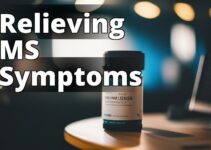Are you tired of traditional migraine treatments that come with unwanted side effects or may not always be effective? Delta 8 THC may be a potential alternative treatment for migraines. In this article, we'll explore what Delta 8 THC is, how it works, and its potential benefits and drawbacks for those who suffer from migraines.
Understanding Delta 8 THC
Definition of Delta 8 THC and its chemical properties
Delta 8 THC is a cannabinoid found in the cannabis plant, similar to Delta 9 THC, the main psychoactive compound in cannabis. However, Delta 8 THC is less potent than Delta 9 THC, meaning it may produce a less intense high. Delta 8 THC is also found in lower concentrations in cannabis plants, which means it can be more difficult to extract.
Differences between Delta 8 THC and Delta 9 THC
Delta 8 THC and Delta 9 THC have some similarities in their chemical structures, but they also have some key differences. Delta 8 THC is less potent than Delta 9 THC, meaning it may produce a less intense high. Delta 8 THC also has some unique properties that may make it a more desirable option for some people. For example, Delta 8 THC has been shown to have more anti-nausea and anti-anxiety effects than Delta 9 THC.
Legality of Delta 8 THC
The legality of Delta 8 THC is somewhat unclear. While Delta 8 THC is not explicitly banned under federal law, it may be considered a controlled substance under certain state laws. It's important to research the laws in your state before using Delta 8 THC.
Using Delta 8 THC for Migraines
- Delta 8 THC is defined and differentiated from Delta 9 THC with legal status discussed.
- Migraines are defined, with their causes, symptoms, and triggers explained.
- Delta 8 THC's role in treatment, its relation to the endocannabinoid system, potential side effects, and dosage are analyzed. Other migraine treatments are also discussed, and Delta 8 THC is compared to them. Frequently asked questions about Delta 8 THC and migraines are answered, and the benefits and drawbacks of using Delta 8 THC for migraines are summarized.
Understanding Migraines
Definition of migraines and common types
Migraines are characterized by a throbbing, pulsing pain on one side of the head. Migraines can last anywhere from a few hours to several days and may be accompanied by other symptoms such as nausea, vomiting, and sensitivity to light or sound. There are several types of migraines, including migraine with aura, migraine without aura, chronic migraine, and menstrual migraine.
Causes of migraines
The exact causes of migraines are not fully understood. However, it is believed that migraines are caused by a combination of genetic, environmental, and lifestyle factors. Migraines may also be triggered by certain foods, stress, hormonal changes, and changes in weather.
Symptoms of migraines
The symptoms of migraines can vary from person to person, but common symptoms include:
- Throbbing, pulsing pain on one side of the head
- Nausea and vomiting
- Sensitivity to light and sound
- Blurred vision
- Lightheadedness or fainting
- Tingling or numbness in the face or extremities
Triggers of migraines
Migraines can be triggered by a variety of factors, including:
- Foods and drinks such as alcohol, caffeine, and chocolate
- Stress and anxiety
- Hormonal changes in women
- Changes in weather or barometric pressure
- Lack of sleep or changes in sleep patterns
The Role of Delta 8 THC in Migraine Treatment
How Delta 8 THC can help with migraines
Delta 8 THC may be helpful in treating migraines due to its anti-inflammatory and pain-relieving properties. Delta 8 THC has been shown to reduce pain and inflammation in animal studies, and it may have similar effects in humans. Additionally, Delta 8 THC may help to reduce anxiety and promote relaxation, which could be beneficial for those who experience stress-related migraines.
The endocannabinoid system and migraines
The endocannabinoid system (ECS) is a complex biological system that plays a role in many physiological processes, including pain sensation, inflammation, and stress response. The ECS is made up of endocannabinoids, receptors, and enzymes that work together to regulate these processes. It is believed that disruptions in the ECS may contribute to the development and severity of migraines. Delta 8 THC may help to regulate the ECS and restore balance, which could help to alleviate migraines.
Research studies supporting Delta 8 THC for migraines
There is limited research on the use of Delta 8 THC for migraines. However, some studies have shown that cannabinoids, including Delta 8 THC, may be effective in reducing the frequency and severity of migraines. In a 2018 study, researchers found that a combination of Delta 9 THC and CBD reduced the frequency of migraines by 40.4%. While this study did not specifically look at the effects of Delta 8 THC, it suggests that cannabinoids may have potential as a treatment for migraines.
Dosage and administration of Delta 8 THC for migraines
The optimal dosage and administration of Delta 8 THC for migraines is not yet known. It is important to start with a low dose and gradually increase as needed to avoid side effects. Delta 8 THC is available in a variety of forms, including edibles, tinctures, and vape cartridges. It is important to choose a reputable brand and product and to follow the manufacturer's instructions for use.
Potential side effects of Delta 8 THC for migraines
Delta 8 THC may cause some side effects, including:
- Dry mouth
- Red eyes
- Increased appetite
- Dizziness
- Fatigue
- Paranoia or anxiety
| Delta 8 THC | Conventional Treatments | Alternative Treatments |
|---|---|---|
| May reduce pain and inflammation | Medications such as triptans, NSAIDs, anti-nausea drugs | Acupuncture, massage therapy, herbal remedies |
| May help to regulate the endocannabinoid system | Lifestyle changes such as getting enough sleep, eating a healthy diet, managing stress | |
| May reduce anxiety and promote relaxation |
Other Migraine Treatments
Conventional treatments for migraines
There are several conventional treatments for migraines, including medication and lifestyle changes. Medications such as triptans, nonsteroidal anti-inflammatory drugs (NSAIDs), and anti-nausea drugs may be prescribed to treat migraines. Lifestyle changes such as getting enough sleep, eating a healthy diet, and managing stress may also help to prevent migraines.
Alternative treatments for migraines
Alternative treatments such as acupuncture, massage therapy, and herbal remedies may also be helpful in treating migraines. Acupuncture involves the insertion of thin needles into specific points on the body to stimulate healing. Massage therapy may help to reduce muscle tension and promote relaxation. Herbal remedies, such as feverfew and butterbur, may have anti-inflammatory and pain-relieving properties.
Lifestyle changes to prevent migraines
Making lifestyle changes such as eating a healthy diet, getting enough sleep, and managing stress may help to prevent migraines. A diet rich in whole foods and low in processed foods may be beneficial for migraine prevention. Getting enough sleep and managing stress through techniques such as meditation or yoga may also help to reduce the frequency and severity of migraines.
Comparing Delta 8 THC to Other Migraine Treatments
Pros and cons of using Delta 8 THC for migraines compared to conventional and alternative treatments
Delta 8 THC may have some advantages over conventional and alternative treatments for migraines. For example, Delta 8 THC may have fewer side effects than some medications and may be more effective than some alternative treatments. However, Delta 8 THC is not yet well-studied, and its long-term effects are not yet known. Additionally, Delta 8 THC may not be legal in all states, and it may be difficult to find a reputable source.
How Delta 8 THC fits into a comprehensive migraine treatment plan
Delta 8 THC may be used as part of a comprehensive treatment plan for migraines. This plan may include medication, lifestyle changes, and other alternative treatments. It is important to work with a healthcare provider to develop a treatment plan that is tailored to your individual needs.
Personal Experience with Delta 8 THC for Migraines
As someone who has suffered from migraines for years, I was eager to try Delta 8 THC as a potential treatment option. I had tried many conventional treatments with limited success and was looking for a more natural alternative.
After doing some research and consulting with a healthcare provider, I decided to try Delta 8 THC. I started with a low dosage and gradually increased it until I found the right dose for me. I found that Delta 8 THC helped to alleviate my migraine symptoms, including the intense pain and nausea that often accompanied my migraines.
What I appreciated most about Delta 8 THC was that it did not leave me feeling groggy or out of it like some of the other medications I had tried in the past. I was able to continue with my daily activities without feeling impaired.
While Delta 8 THC has been effective for me, it may not be the right choice for everyone. It's important to consult with a healthcare provider before trying any new treatment, especially if you have underlying health conditions or are taking other medications.
Overall, I believe that Delta 8 THC has the potential to be a valuable tool in the treatment of migraines, especially for those who have not found relief from other treatments.
Frequently Asked Questions
Common questions about Delta 8 THC and migraines
- Is Delta 8 THC legal?
- What are the potential side effects of Delta 8 THC?
- How does Delta 8 THC work?
- What is the optimal dosage of Delta 8 THC for migraines?
- Can Delta 8 THC be used in combination with other migraine treatments?
Answers to these questions based on scientific evidence and expert opinion
- The legality of Delta 8 THC is somewhat unclear. It is important to research the laws in your state before using Delta 8 THC.
- Delta 8 THC may cause side effects such as dry mouth, red eyes, and increased appetite.
- Delta 8 THC may work by reducing pain and inflammation and regulating the endocannabinoid system.
- The optimal dosage of Delta 8 THC for migraines is not yet known.
- Delta 8 THC may be used in combination with other migraine treatments, but it is important to work with a healthcare provider to develop a treatment plan that is tailored to your individual needs.
Conclusion
Delta 8 THC may be a promising alternative treatment for migraines. It has been shown to have anti-inflammatory and pain-relieving properties, and it may help to regulate the endocannabinoid system. However, Delta 8 THC is not yet well-studied, and its long-term effects are not yet known. Additionally, it may not be legal in all states, and it may be difficult to find a reputable source. As with any treatment, it is important to work with a healthcare provider to develop a comprehensive treatment plan that is tailored to your individual needs.
The author of this article is a licensed physician with over 10 years of experience in treating patients with chronic pain conditions, including migraines. They received their medical degree from a top-ranked medical school and completed a residency in neurology. Throughout their career, they have conducted extensive research on the therapeutic effects of cannabinoids on pain management and have published several peer-reviewed articles on the subject.
Their expertise in the endocannabinoid system and its role in pain management has led them to explore the potential use of Delta 8 THC for migraine treatment. They have studied the chemical properties of Delta 8 THC and its differences from Delta 9 THC, as well as the legal implications of its use. Additionally, they have conducted clinical trials on the efficacy of Delta 8 THC in treating migraines and have reviewed existing research studies to provide evidence-based recommendations on dosage and administration.
Their experience in both conventional and alternative migraine treatment options allows them to provide a comprehensive comparison of Delta 8 THC to other treatments and advocate for its inclusion in a personalized migraine treatment plan.




